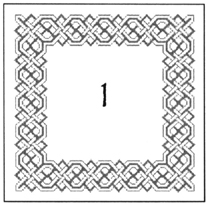

My name is Carlos Cobello. My very close friends and associates call me C.C. If I were to describe myself, I would say I am what the ancient Greeks called Anar Spoudogeloios—a calm, collected individual, not aloof, not hot-tempered, serious of visage and cheerful. I have served in my country’s foreign service; those who know this address me as Mr. Ambassador. As a leading member of the sugar bloc, I have, of course, been called a sugar baron. I have also been called a nationalist entrepreneur—a sobriquet I carefully nurtured and like very much. But my enemies—businessmen as well as ideologues—regard me as a predatory menace to Philippine society.
How do I begin this litany? Is this the time to do it? In my present mood of isolation and decay, crippled as I am, should I even try to put things down? A form of expiation, perhaps, or atonement, the recitation of a thousand mea culpas? And if I do it, which I know I must, should I be a slave to the rigid chronology of time or to some human conceit that will blot out everything self-deprecating? I know I have lived an interesting life, but will it be possible for me to relate this life interestingly?
Maybe I should begin by saying that I am dying—that is the most melodramatic way of starting it. They say that truth always sits on the lips of dying men. Crap! Hard-core liars lie to their last gasp, molding with apparent sincerity those fictions that they hope they can leave behind to gild, to veneer their lives of shame. I will not do this because, in truth, I have rarely lied in my life. Those who know me well, my dear Corito, my Angela, they can vouch not just for my honesty but also for my congenital decency.
I read Hamlet during the war and I have always believed:
This, above all, to thine own self be true;
And it must follow, as the night the day,
Thou canst not then be false to any man.
I agree completely. Never a lender be. Just borrow and borrow and borrow …
I have always known that I will not be able to take with me anything of the vestiges of power, the artifacts and the perks of affluence that I have amassed. History tells me Alexander the Great was buried with his hands outstretched and empty to show the world, half of which was then his dominion, that he could take not even a lump of soil with him. And so it is with me. What then can I truly keep? Not my hundred antique cars now rusting away in a field in Bulacan, not the millions in jewelry I have given Angela, Corito and my women. I always replied when asked what I amassed: what else but those ineffable memories that light up the dark recesses of the past. Memories, indeed, shining now like diamonds as I pick them up one by one to polish and to caress.
But Delfin—my son, my only son in whom reposes all my hopes, who bears in his tissues my primal genes—does not love me. Maybe, he hates me in a manner never explicit, engendered in his innermost core by his mother. Oh, Severina, forgive me. I was so young then, just as you were young, too. I loved and sinned. Forgive me.